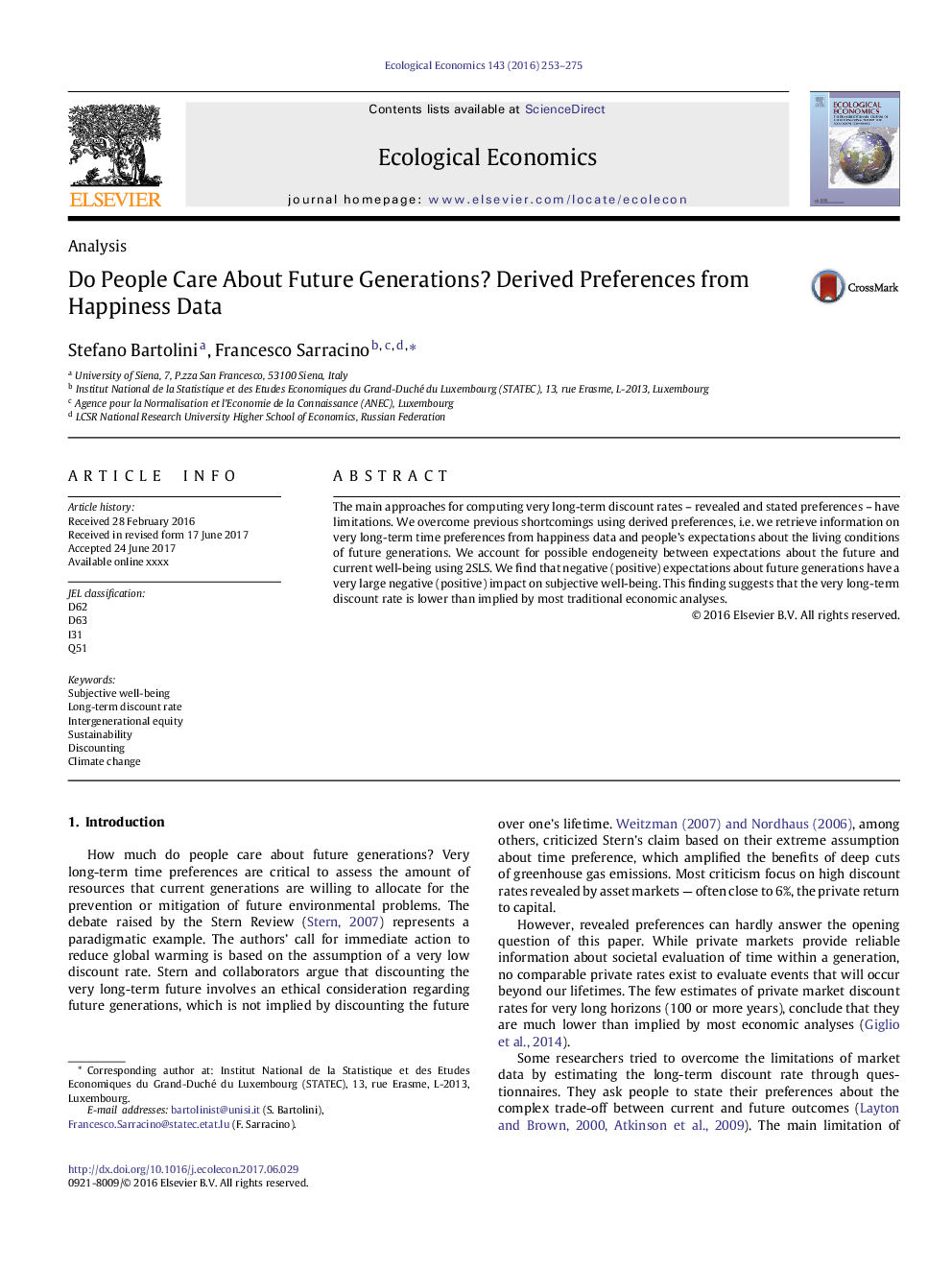| Article ID | Journal | Published Year | Pages | File Type |
|---|---|---|---|---|
| 5048579 | Ecological Economics | 2018 | 23 Pages |
Abstract
The main approaches for computing very long-term discount rates - revealed and stated preferences - have limitations. We overcome previous shortcomings using derived preferences, i.e. we retrieve information on very long-term time preferences from happiness data and people's expectations about the living conditions of future generations. We account for possible endogeneity between expectations about the future and current well-being using 2SLS. We find that negative (positive) expectations about future generations have a very large negative (positive) impact on subjective well-being. This finding suggests that the very long-term discount rate is lower than implied by most traditional economic analyses.
Keywords
Related Topics
Life Sciences
Agricultural and Biological Sciences
Ecology, Evolution, Behavior and Systematics
Authors
Stefano Bartolini, Francesco Sarracino,
